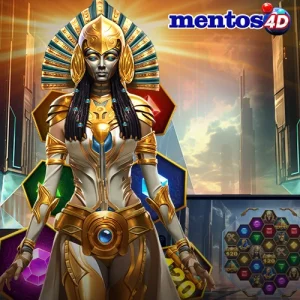Introduction: In the digital age, online gaming has emerged as a cultural phenomenon, captivating millions of players worldwide. With the evolution of technology and the proliferation of high-speed internet, gaming has transcended its traditional boundaries, offering immersive experiences that bridge distances and connect individuals in virtual realms. From casual mobile games Mentos4d to competitive eSports tournaments, the landscape of online gaming is as diverse as it is dynamic. 
The Rise of Online Gaming: The roots of online gaming can be traced back to the early days of the internet, where rudimentary multiplayer experiences laid the groundwork for the expansive virtual worlds we enjoy today. As technology advanced, so did the capabilities of online gaming platforms, enabling seamless multiplayer interactions and sophisticated gameplay mechanics. The advent of social media and streaming services further fueled the growth of online gaming, transforming it into a mainstream form of entertainment.
Diversity in Gaming: One of the most remarkable aspects of online gaming is its diversity. From massively multiplayer online role-playing games (MMORPGs) to first-person shooters (FPS), real-time strategy (RTS), and sandbox simulations, there is a genre to suit every taste and preference. Additionally, the rise of indie game development has led to an influx of innovative titles that push the boundaries of creativity and storytelling.
Community and Social Interaction: At the heart of online gaming lies a vibrant and interconnected community. Players from different corners of the globe come together to collaborate, compete, and form lasting friendships within virtual environments. Whether it’s teaming up to tackle a raid boss in an MMORPG or engaging in friendly banter during a heated multiplayer match, the social aspect of online gaming enhances the overall experience and fosters a sense of camaraderie among players.
Evolving Technologies: The landscape of online gaming is constantly evolving, driven by advancements in technology. From cutting-edge graphics and immersive virtual reality (VR) experiences to cloud gaming and cross-platform compatibility, developers are continually pushing the boundaries of what is possible in the digital realm. These technological innovations not only enhance the visual fidelity and performance of games but also open up new avenues for gameplay innovation and player engagement.
The Rise of eSports: In recent years, online gaming has transcended its status as a recreational activity to become a legitimate sport. The rise of eSports has brought competitive gaming into the mainstream, with professional players competing for lucrative prizes in front of millions of viewers. Major eSports events, such as the League of Legends World Championship and The International Dota 2 Championship, attract massive audiences both online and offline, further solidifying the global appeal of competitive gaming.
Challenges and Opportunities: While online gaming offers a myriad of opportunities for entertainment and social interaction, it is not without its challenges. Issues such as toxic behavior, cybersecurity threats, and addiction have become increasingly prevalent concerns within the gaming community. However, industry stakeholders, including developers, platform operators, and regulatory bodies, are actively addressing these challenges through initiatives aimed at promoting a safe and inclusive gaming environment.
Conclusion: Online gaming has emerged as a cornerstone of modern entertainment, offering a rich tapestry of experiences that captivate players of all ages and backgrounds. From its humble beginnings as a niche hobby to its current status as a global phenomenon, the journey of online gaming is a